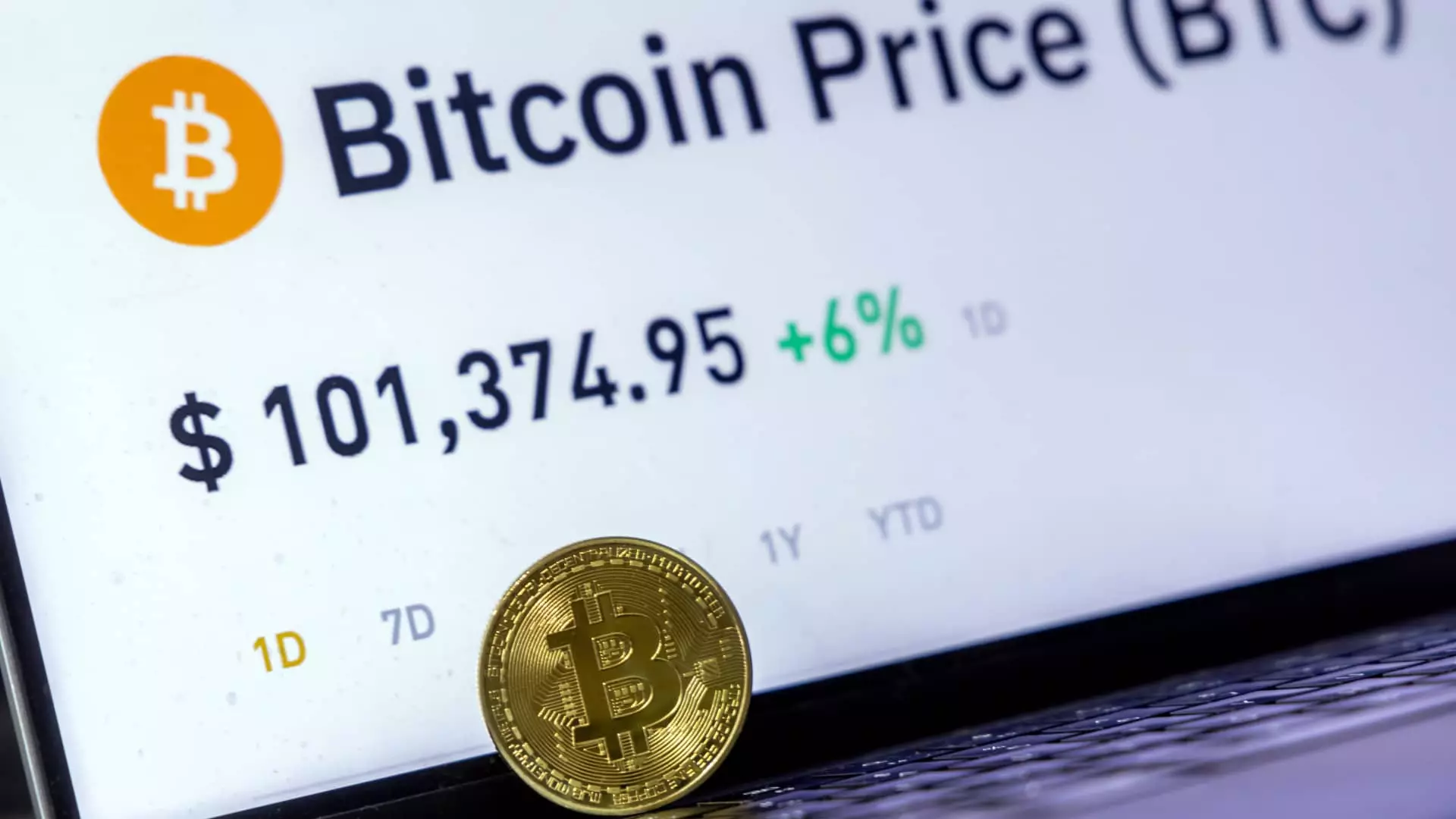The cryptocurrency market has been exceptionally volatile since its inception, but the recent surge in Bitcoin above the $100,000 mark has captured the attention of investors and analysts alike. This momentous milestone signals not merely a speculative bubble but possibly a profound shift in how institutional investors see cryptocurrency as an asset class. The ascent above six figures has been fueled by a confluence of events during a year where Bitcoin’s profile dramatically rose within the United States’ financial sphere and political discourse.
Many cryptocurrency enthusiasts have long predicted that Bitcoin would eventually eclipse the $100,000 threshold, with hopes and predictions charting a path to this landmark. However, a significant portion of the Wall Street establishment regarded these forecasts as overly optimistic or based solely on hype. The recent developments in 2024 break this cycle of doubt and skepticism.
One of the primary catalysts for Bitcoin’s meteoric rise has been the introduction of Bitcoin exchange-traded funds (ETFs), with the initial launch occurring on January 11, 2024. These ETFs attracted a remarkable influx of capital—amounting to tens of billions of dollars—contrasting sharply with previous years when Bitcoin was largely viewed as a pastime for retail investors. The leading player, iShares Bitcoin Trust (IBIT), now boasts an impressive portfolio worth $50 billion, showcasing the strong demand for Bitcoin exposure among traditional investors.
The convincing bargain between institutional fervor and the evident acceptance of Bitcoin in mainstream finance marks a pivotal moment in its trajectory. This embrace from large investment firms is now pushing Bitcoin further into the financial conversation—one previously dominated by conservative equities and bonds. Institutional buying has dramatically changed not only the price dynamics but also the overall perception of Bitcoin, shifting it from a high-risk asset to a more legitimized financial instrument.
Compounding Bitcoin’s rise in the financial market is its burgeoning influence in U.S. politics. During the 2024 election cycle, the crypto lobby invested substantial resources, gaining traction within political circles. Notably, President-elect Donald Trump’s recent appearances at bitcoin-centric events underscore a significant ideological shift. Trump’s appointment of Paul Atkins as the new SEC chair, known for a more favorable outlook on cryptocurrencies compared to his predecessor, adds to the growing acceptance of digital currencies in the political realm.
Opinions vary widely on Bitcoin’s regulation and integration into the financial system. As stated by Robinhood CEO Vlad Tenev, previous regulatory bodies have been viewed as antagonistic towards the cryptocurrency market, resulting in the perception of crypto firms as targeted victims of stringent regulations. With a new administration inputting leadership that appears more congenial to Bitcoin, there is cautious optimism within the industry.
The Psychological Impact of Institutional Buying
The psychological effect of institutional purchasing on cryptocurrency markets can not be underestimated. Reports indicate that institutions, including major companies like MicroStrategy, have acquired a staggering 683,000 Bitcoins to date. This level of institutional investment injects credibility into the market, validating the asset class in ways that retail buying cannot match. The boost in market sentiment since the recent election, with Bitcoin climbing around 49% since November 4, showcases a broader recognition of Bitcoin’s potential.
Additionally, words from prominent figures such as Federal Reserve Chair Jerome Powell, who acknowledged Bitcoin as a competitor to gold rather than the U.S. dollar, signal a move towards legitimacy. While Powell’s comments may not fully endorse cryptocurrencies, comparing Bitcoin to gold—the historical safe-haven asset—serves to enhance Bitcoin’s standing in the mainstream financial dialogue.
The ascent of Bitcoin above the $100,000 level encapsulates a narrative of transformation. From a speculative play largely restricted to individual retail investors, it is rapidly finding its place within institutional portfolios and political discussions. The rise of Bitcoin ETFs, increasing institutional buy-in, and a more supportive regulatory environment suggest a promising landscape for Bitcoin and the broader cryptocurrency market.
As the financial world evolves, one can only anticipate how Bitcoin will continue to pave the way for innovation—and potentially even reshape our understanding of what currency itself can be. The year 2024 is shaping up to be a watershed one for Bitcoin, marking the start of what could be greater mainstream acceptance and integration into the fabric of traditional finance.

